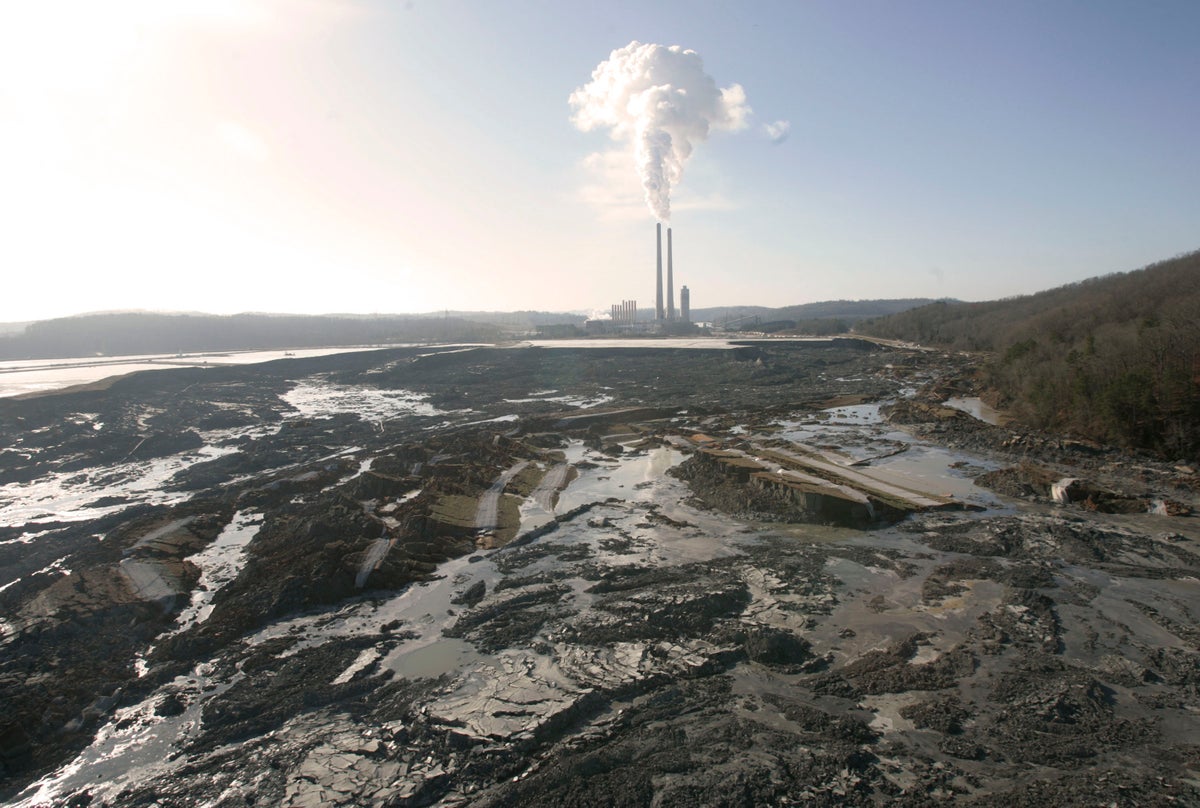
A coalition of environmental groups sued the Environmental Protection Agency on Thursday over its refusal to regulate some older coal ash dumps, claiming they are polluting air and groundwater.
A lawsuit filed in federal court in Washington D.C. seeks to compel the agency to review and revise regulations it says are “inadequate to protect human health and the environment" from the solid waste produced by coal-burning power plants.
The EPA first began regulating coal ash disposal in 2015, prompted by the 2008 collapse of a six-story earthen dam outside a Tennessee Valley Authority power plant in Kingston, Tennessee. The disaster released more than a billion gallons of coal ash sludge onto 300 surrounding acres (about 121 hectares), knocking homes off their foundations and fouling the Emory River.
When EPA was crafting its coal ash regulations, many of those concerned about the possible health effects of the ash hoped the agency would declare it to be hazardous waste. That didn't happen, but EPA did create special rules for its disposal. They included location restrictions, liner requirements to prevent groundwater contamination and groundwater monitoring to detect leaks.
Not all coal ash disposal sites were included in the new regulations, however. EPA specifically exempted landfills that stopped receiving new waste before the rule went into effect. Since then, many of the regulated landfills that require groundwater monitoring have subsequently reported unsafe levels of arsenic and other chemicals in nearby groundwater. The lawsuit posits that older, unregulated landfills must also be polluting and should be regulated.
In addition, the contamination from the older landfills could be masking problems at newer landfills that are often on the same property, the lawsuit states. That's because the operators of the regulated landfills don't have to address groundwater contamination if they can show that it is coming from another source.
Neither the TVA nor the EPA responded to a request for comment on Thursday morning.
The lawsuit spotlights Bull Run power plant in Clinton, Tennessee, which is also run by TVA, the nation's largest public utility.
The site contains three separate but adjacent coal ash landfills. One closed in 1992. The second closed in 2015 — just before the EPA regulations took effect. The third opened in 2015 and is an active landfill. Even though the groundwater at the new landfill shows significantly high levels of boron, sulfate and other chemicals, TVA does not have to take action because an engineering report attributes the contamination to “pre-existing groundwater conditions."
One of the plaintiff groups is Tennessee-based Statewide Organizing for Community eMpowerment. Member Todd Waterman said in a telephone interview that he has seen friends who helped clean up the Kingston coal ash spill sicken and die. Now he is worried about what the ash at the Bull Run plant could be doing to his drinking water.
“I'm deeply concerned for my community," he said in a phone interview about the plant scheduled to shut down next year. "I don't want TVA to just walk away from that plant and leave all that contamination in place.”
Other plaintiffs include the Hoosier Environmental Council in Indiana, the Indiana State Conference and the LaPorte County Branch of the NAACP, Clean Power Lake County in Illinois, and several national groups including the Sierra Club and Earthjustice, which filed the suit.
The EPA is required to review and, if necessary revise, regulations like those for coal ash disposal every three years, something it has failed to do, according to the lawsuit. Plaintiffs are asking the judge to order a review of the regulations, especially the exemption for older coal ash landfills. They estimate there are close to 300 landfills exempt from regulation in 38 states.
“Regulations addressing these landfills would prevent exposure to deadly coal ash constituents, protect drinking water sources and aquatic ecosystems, and lead to much needed cleanups nationwide,” the lawsuit states.







